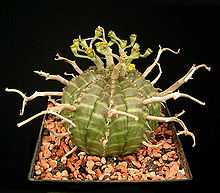Monochlamydae

Monochlamydae[1] is an artificial group used in the identification of plants based on Bentham and Hooker's classification system.[2] George Bentham and Joseph Dalton Hooker published an excellent classification in three volumes in between 1862 to 1883 but as a natural system of classification, it does not show evolutionary relationship between plants but still is a useful and popular system of classification based on a dichotomous key especially for the flowering plant groups (angiosperms).
Under Engler and Prantl's revision,(1931) the group Monochlamydae was completely abolished and under Hutchinson's Revision (1959) the sub groups were modified from the original scheme.[3] but Bentham and Hooker's system is the most popular system of classification based on key characteristics enabling taxonomic students to quickly identify plant groups based only on physical characteristics. However, it is not a scientific group and is used for identification purposes only based on similar plant characteristics. Under the system Monochlamydae are a group of plants based on an artificial and non scientific series. The group comprises;
- Flowers incomplete because calyx or corolla or sometimes both are absent.
Previous Order
- Dicotyledons
See also
References
- ↑
- ↑ Bentham and Hooker's Classification of Plants
- ↑ Pushkar, K. (undated) Comprehensive Objective Botany, Upkar Prakashan Books, Agra no 391 (see Google Books)